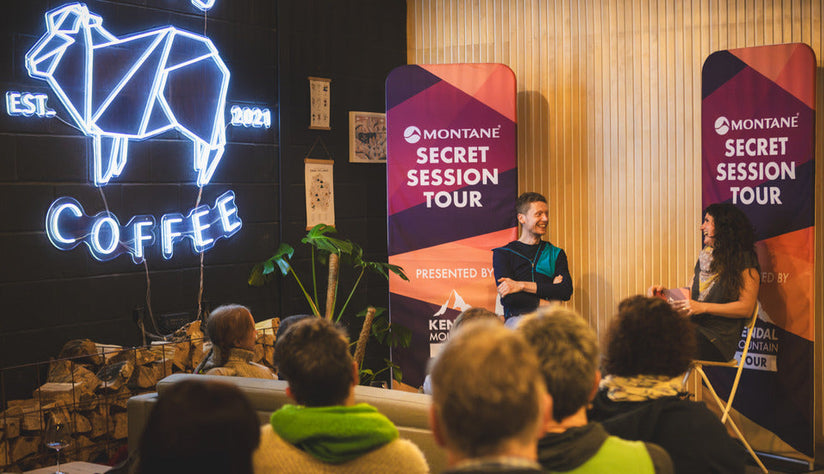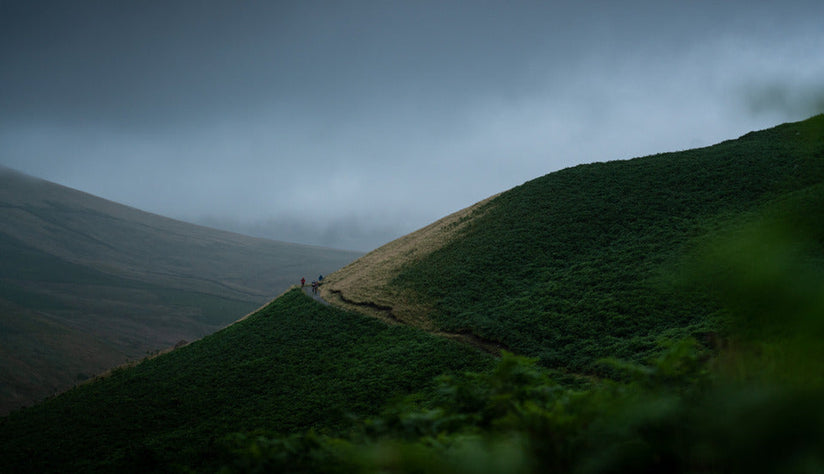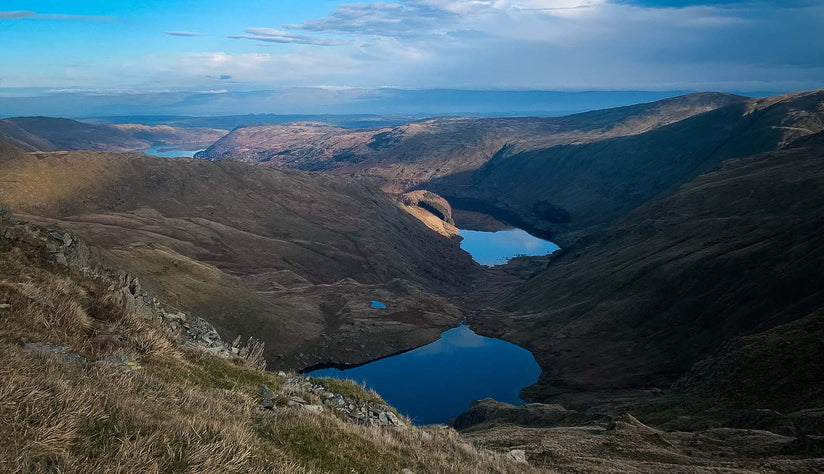In support of Mental Health Awareness Week (13-19 May) we hear from NHS clinical psychologist Malcolm Bass. Malcolm is a former Alpinist whose career in mountaineering was cut short following a life-changing stroke in 2020. Alongside recovering physically, Malcolm struggled with his mental health, as he adjusted to his new way of life.
Keep reading to hear how Malcolm has learned to manage his mental health during this time, including learning how to reclaim his identity, away from the mountains...
Asking for help
I used to be a high performing alpinist climbing new routes in the Himalaya. In August 2020, I had a massive stroke and lost all sensation and movement in my left side. I can no longer climb. From being a high performing alpinist I have changed into a disabled middle-aged man. Suddenly it was my time to say goodbye to the glittering world of big snowy mountains and descend gloomily to the shaded, humdrum life of the valley. I have found this transition to be a very difficult journey and I am not there yet. Lots of people find role changes difficult and I am writing this in the hope that other people undergoing any sort of role change will find some of my experiences helpful.

At my lowest points I have felt totally unable to cope with life after alpinism. What would I do with my time? What would my goals be? And who would I be? I was full of fear, anger and despair. At times I wanted to die. What was the point of going on now all my dreams were shattered? With all my training and experience as a registered clinical psychologist I recognised that wishing to be dead was not a sign of great mental health and at this low point I did something very sensible. I asked for help from NHS mental health services. The care I have received from them has been excellent and very helpful. I have been listened to and taken seriously. All treatment has been done in line with my wishes. I have now been put on antidepressant medication and have had many sessions of psychotherapy with clinical psychologists. While I feel much better, there is no panacea.
Rediscovering Malcolm
In the months after my stroke I wrongly believed that my identity was entirely tied up with being an alpinist. Losing that identity was terrifying. During the course of my psychotherapy I came to realise that being an alpinist had never represented the whole of my being, being an alpinist was just a role I had played - at times somewhat unconvincingly.
I was Malcolm before I was an alpinist and would be Malcolm now that I was no longer an alpinist. I needed to identify and celebrate sources of continuity in my identity. I have found these sources of continuity in my values and personality traits. When I was an alpinist I was brave, goal focussed and loved a challenge. Alpinism provided me with a perfect arena to express these personality traits, but I can find new ways of expressing them in my new life. I have had to find new challenging goals to give my life a sense of adventure. I have bought a recumbent trike and want to try to ride it up the Pennine Bridleway. I am also improving my one-armed/one-legged swimming and find plenty of adventure when I am feeling tired in out-of-depth cold water whilst still 100m from the shore.
When I was an alpinist I valued love, laughter, adventure, the natural world, and compassion. In my new life I can find many ways to search for, and manifest, these things I value. Living by and with those values adds a continuity and meaning to my new life.
Love has helped me carry on. My wife, partner and soulmate Donna James and I have lived a beautiful love story together and we see this rather grim phase of our joint lives as just another twist in that story. Donna is also sharing with me a massive role transition – hers as she abandoned her sport out of love to look after me. My friends and family, whom I was scared and embarrassed to see immediately after my stroke, have demonstrated their love and having faced the fear of letting people see the ‘new not-so-improved’ Malcolm, now are a source of huge joy and motivation to me. My best friend and climbing partner of 30 years, Simon Yearsley, has also been forced to retire prematurely from alpinism and we comfort each other with that shared loss. My alpine climbing partners, Paul Figg, Guy Buckingham, and Adrian Mellor visit regularly. The climbing and caving communities have rallied round, and I now find identity and a welcome in new roles in the climbing world.
My personal concept of compassion is loosely based on Paul Gilbert’s description. I construe compassion as action taken to reduce or prevent the suffering of people and other sentient beings. I value compassion highly. I admire compassionate people and believe compassion to be a good value around which to build societies. I have striven to behave compassionately in my own life but know that I have often fallen short of the mark. Now I can seek to redress that, and I have made my own vows on how I will do so.
Finding a new way of life
My physical disability has forced both Donna and me to move more slowly. We can still enjoy the natural world while we do so: watching the seasons, the flora and fauna. While we mourn the freedom of moving athletically through landscapes – Donna rapidly, me vertically - we have learned to take joy from the more limited horizons we now share. When I was an alpinist, I flew and drove all over the world generating a terrible carbon footprint. This was not congruent with my values of compassion and nature loving. Now that I am no longer an alpinist, I have hugely reduced my travel miles. This means that my new post-alpinist life is more congruent with my values than my alpinist life was.
With help from Donna, the NHS, my friends, sporting communities and sponsors, I am now building a life worth living. I no longer want to die. I feel that I have a worthwhile identity and I am looking forward to more challenging adventures. Despite having negotiated my change of role reasonably successfully, I still often feel sad about the end of my life amongst the glittering mountain peaks. I accept and honour this sadness. I don’t need to change it, I mourn and celebrate the wonderful brief golden life I led in the mountains. Sadness and loss are a natural part of life.
All human lives acquire an increasing burden of sadness as they progress. Bereavement, lost loves, unrealised dreams and lost youth all become part of the baggage we carry around with us. I hope I can continue to be a brave, adventurous, compassionate person living my values purposefully, whilst carrying my sad and beautiful memories with me as I travel.
Support Malcolm
For those inspired by Malcolm’s story and eager to support his rehabilitation and recovery, you can donate to his fundraiser, Move Mountains for Malcolm. For anyone seeking further support on this topic, you can find more information on the Stroke Association website.
This article was brought to you by #TeamMontane member Malcolm Bass. For anyone affected by the topics discussed in this article, struggling to cope with their own mental health, or looking for advice to support someone experiencing mental ill-health, head to the Mental Health Foundation for expert advice and useful resources.














